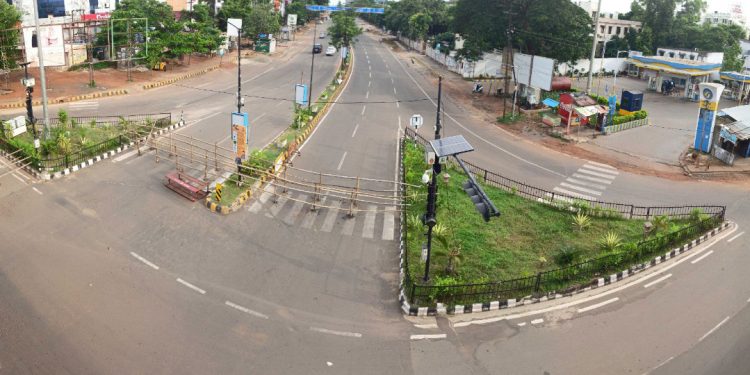Bhubaneswar: If we have to define ecosystem in simple terms, we may describe it as a geographical area where plants, animals and other organisms as well as weather and landscape work together to form a bubble of life.
Hence, for the ecosystem to function effectively we need a systematic working of all these factors.
In last one decade, Odisha has been hit by the effects of climate change. Adverse impacts have been felt in various sectors like agriculture, healthcare and even availability of water. In addition, the state witnessed increasing natural disasters, such as cyclones, floods, storms, droughts and heat waves, besides further land erosion in coastal areas, intrusion of sea water into land and a rise in sea level.
Interestingly, the environmental changes were fewer during Covid-19 induced lockdown since March 2020. According to experts, there is a decrease in discharge of sewage and industrial effluents into the rivers. This apart, noise pollution too was reduced by up to 35% to 68% across the globe, while wildlife got a chance to reclaim their habitats.
The pollution levels in major towns in Odisha, including Bhubaneswar, fell drastically during the lockdown, according to sources at the Odisha State Pollution Control Board (OSPCB).
Sundara Narayan Patro, an environmentalist and president of Odisha Environmental Society, said that in a way, Covid-19 made us realise that we can live in the society with controlled use of resources, thereby helping to sustain and save natural resources as well as protecting our environment.
Echoing his view, Jaya Krushna Panigrahi, secretary of OES, said that activities, when detrimental, should be restricted. “A paradigm shift in our behaviour holds the key to bring about the desirable change,” he said.
Bichitrananda Biswal, known as the ‘Turtle man of India’, said that the government should continue the lockdown restrictions for at least one day every week even when the Covid situation improves. He explained that last year the nesting activities of Olive Ridley turtles coincided with the lockdown declared by state and Central government to curb the spread of the Covid-19 pandemic.
“With no tourists flowing in to witness the annual affair, there has been least human interference to the nesting sites. As a result we witnessed mass nesting of the species during the day after many years,” Biswal said.
“This makes us realise that strict controls by government helps in protecting the environment and, hence, the government should continue with such restrictions in vulnerable areas on trail basis for more positive results,” he said.
Meanwhile, Sudarshan Das, an environmentalist and secretary of Odisha Environment Congress, said that although Covid-19 helped in minimising the exploitation of resources, the pandemic also witnesses an increased use of single-use plastics (including personal protective equipment such as disposable masks and gloves), which is not good for our environment.
Ajay Parida Director of Institute of Life Science said that it is time to take appropriate measures to restore and protect the natural environment.
Panigrahi concluded that our objective should be to highlight the significance of environment and remind people to take a pledge to protect and conserve the natural ecosystems.
Arindam Ganguly, OP






































